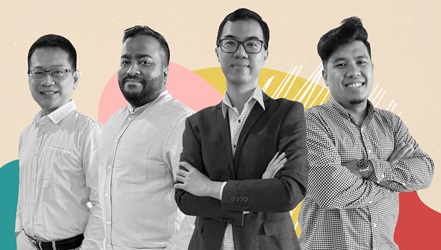Smarter homes, safer workplaces, fighting scams, and more: How the Public Service transforms for a better Singapore
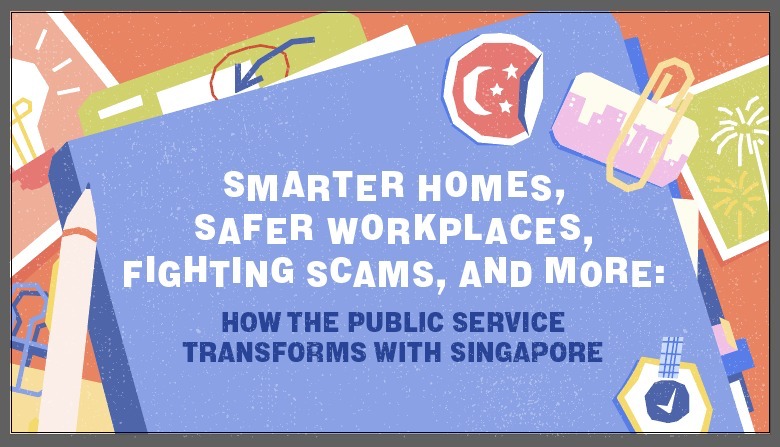
5-min read
Singapore’s Public Service has been transforming the way officers work, serve, and solve problems, keeping pace with a world that is growing more complex by the day.
While most of us go about our daily routines, public agencies have been reimagining the fundamentals: from building homes efficiently and sustainably, to improving how we communicate with citizens, and ensuring the Public Service remains innovative and agile.
Public Service Festival 2025, held in July, thus celebrates transformations and innovations that have made a real difference in our daily lives. Read on to learn about 11 practical solutions that have made Singapore a better place!
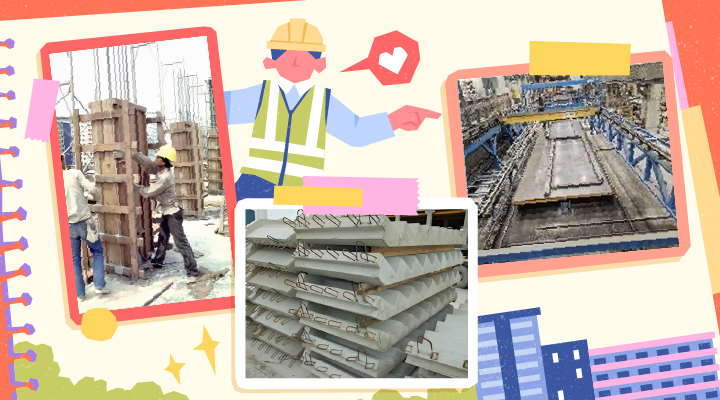
Transforming our living environment
Building faster, smarter homes
The challenge: As Singapore’s largest housing developer, the Housing & Development Board (HDB) faces the challenge of meeting the nation's housing needs while delivering quality homes.
The solution: A key development has been the use of precast technology. The precast method enables modular building components to be manufactured off-site, delivered, and assembled on-site. This improves quality, makes worksites safer, reduces reliance on manual labour, and cuts down on noise, dust, and construction waste. Today, about 70% of the concrete used in a typical HDB project is produced in factories and precast plants.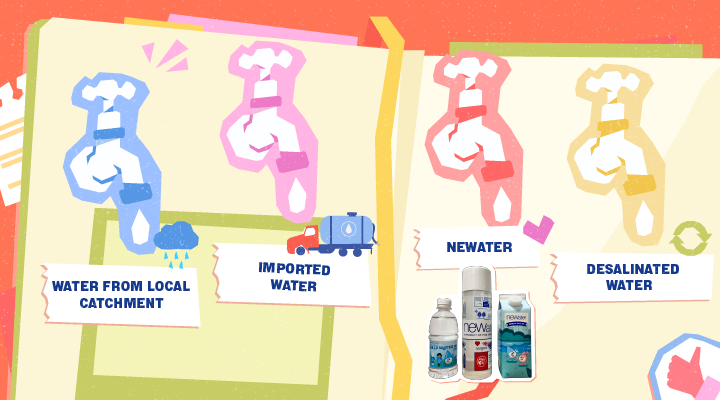
Making every drop of water count
The challenge: As one of the most water-stressed countries in the world, every drop counts in Singapore. Hence, the challenge of securing a resilient water supply has always been a key priority.
The solution: To strengthen our water security, PUB, Singapore’s National Water Agency, launched NEWater in 2002, our very own brand of ultra-clean, high-grade reclaimed water. NEWater is not just safe to drink. It is so pure that wafer fabrication plants, which demand the highest quality water, are among its biggest users. Today, Singapore has successfully diversified our water supply through the ‘Four National Taps’ – water from local catchment, imported water, NEWater, and desalinated water.
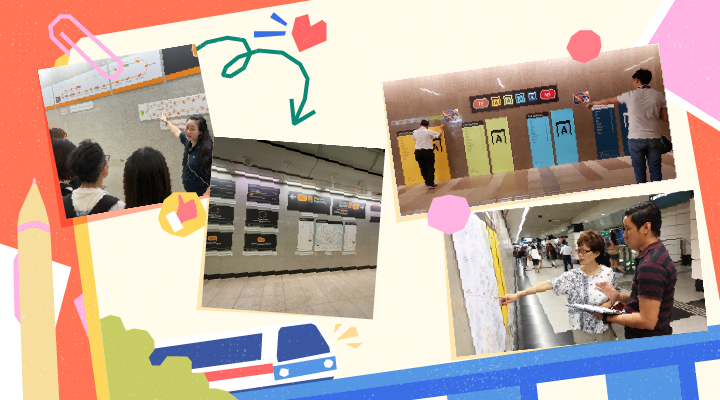
Working with the public for better wayfinding
The challenge: In a fast-paced city like Singapore, knowing where you are going is key to a smooth and stress-free commute. But as our train network expands, navigating your way can become confusing.
The solution: Co-creating the solution with the public was key to the Land Transport Authority’s (LTA) approach. Ahead of new stations opening on the Circle Line in 2026, LTA engaged diverse groups including students, working adults, seniors, and people with disabilities to co-create wayfinding signage. Their feedback shaped proposed designs, which were further refined through public surveys. This ensures our signages will be clearer, more inclusive, and easier to follow.
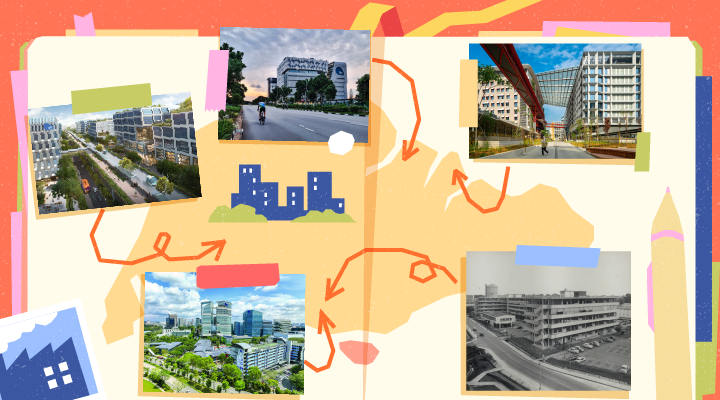
Growing our economy
From flatted factories to innovation districts
The challenge: As a small, resource-strapped nation, Singapore’s workforce needs to be highly adaptable and innovative, keeping pace and even staying ahead of global economic trends.
The solution: JTC, Singapore’s lead agency for industrial development, has continually evolved our industrial infrastructure. In the 1960s and ’70s, it built flatted factories to drive manufacturing. Today, JTC masterplans and develops new hubs like one-north, Jurong Innovation District, Seletar Aerospace Park, and Punggol Digital District—spaces for talent, research, innovation, and sustainable growth.
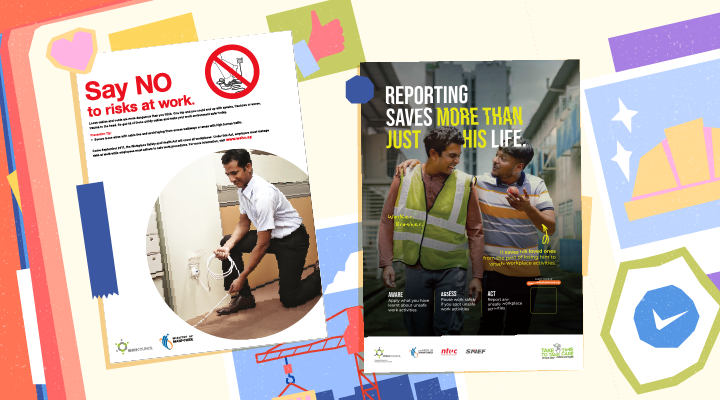
Safer workplaces through shared responsibility
The challenge: Keeping job sites and workers safe has always been vital to Singapore’s economic progress. At the heart of this effort is a shared commitment to both enterprise accountability and individual responsibility. As the nation advances, cultivating a robust safety culture becomes more crucial than ever.
The solution: Today’s workplace safety campaigns by the Workplace Safety and Health Council have shifted focus from individual responsibility for safety to focus on mutual care—encouraging workers to look out for one another and collectively uphold a culture where safety is everyone’s responsibility.
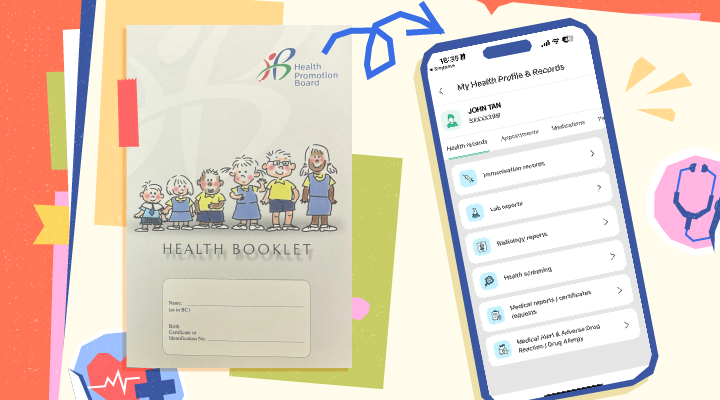
Building a healthy and resilient society
Enabling better health monitoring
The challenge: Remember the hassle of juggling health appointments across different polyclinics and hospitals, or trying to keep track of records with appointment cards and paper printouts?
The solution: Thanks to extensive digitalisation, information from various healthcare institutions is now brought into one seamless digital portal initiated by the Ministry of Health, Healthhub. We can now easily access and manage medical appointments, review health records, and even make payments, even for our loved ones, all in one place.
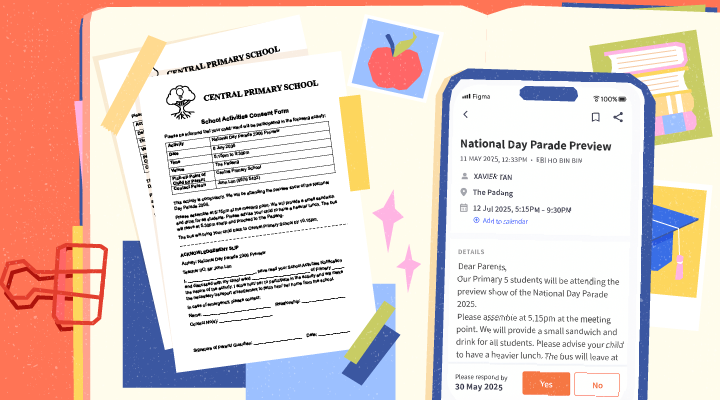
Bringing schools and families closer
The challenge: Just like health records, parents used to rely heavily on paper forms—whether it was giving consent for activities or keeping up with school announcements.
The solution: Parent-school interactions have gone digital with the Parents Gateway app launched by the Ministry of Education. Parents can now give consent and stay informed about school activities quickly and conveniently—all from their mobile devices.
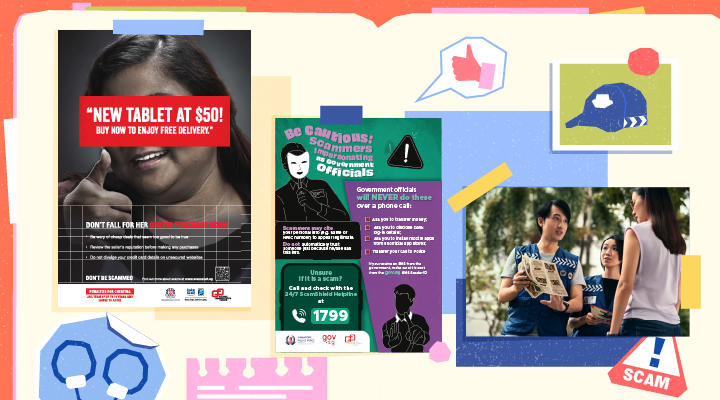
Keeping Singapore secure
Fighting scams with smarter tools
The challenge: As Singapore becomes more digitally connected, scammers have also gone online—using increasingly sophisticated tactics. Anti-scam campaigns traditionally focused on targeting specific scams, such as job scams and impersonation of government officers. As scammers evolve, protecting the public now requires smarter tools fit for the digital age and a more targeted approach.
The solution: The ScamShield Suite which was introduced in Sep 2024, comprises the ScamShield Helpline (1799), ScamShield app (for iPhone and Android), a website (www.scamshield.gov.sg) with a range of anti-scam resources, and a ScamShield alert social channel on WhatsApp. Each of these plays a crucial role in empowering individuals to fight against scams, as well as keeping the community safe from fraudulent activities.
To build long-term scam resilience, anti-scam campaigns now focus on encouraging the public to take measures to protect themselves, like activating “Money Lock” to protect their funds, and partnering the community to make scam prevention a whole-of-society effort.
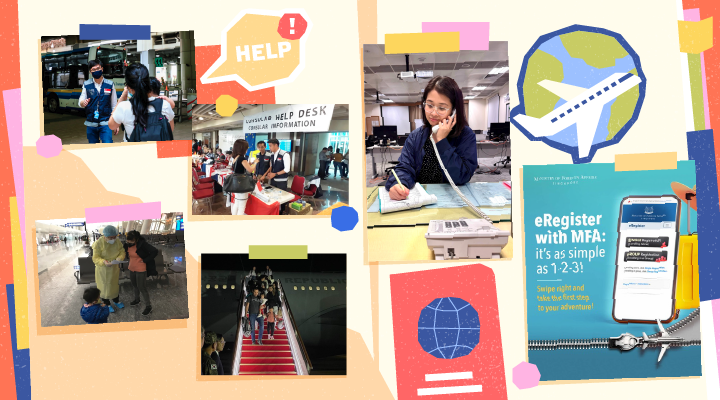
ASSISTING SINGAPOREANS IN DISTRESS OVERSEAS
The challenge: In an increasingly complex and volatile world, how do we continue to assist Singaporeans during emergencies overseas?
The solution: To reach our citizens travelling or residing overseas, the Ministry of Foreign Affairs (MFA) has developed the eRegister system for citizens to log their travel details before heading abroad. Through eRegister and their 24/7 Consular Response Centre, MFA stands ready to assist Singaporeans overseas across all time zones, providing support during emergencies including natural disasters and unrests anywhere in the world.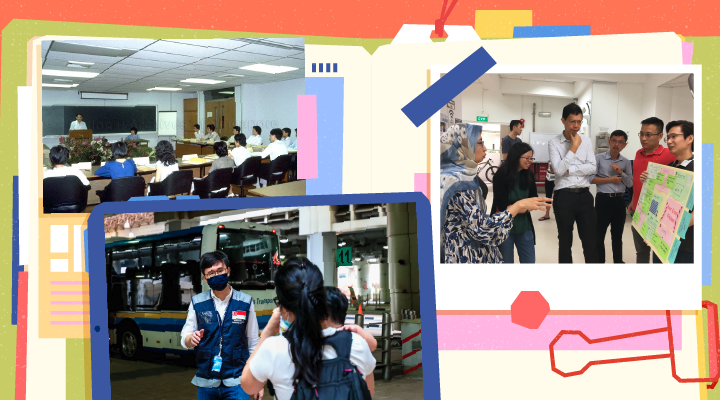
Transforming Public Service
Learning never stops
The challenge: In a society reliant on human resources like Singapore, the Public Service must continuously evolve to meet the nation’s needs. This means our officers need to upskill and reskill constantly—without losing momentum in their day-to-day roles. But how can we learn meaningfully and apply new knowledge effectively while managing our workload?
The solution: Moving beyond traditional classroom learning, the Public Service Division now offers flexible learning options. Through the one-stop LEARN platform, officers can register for in-person programmes by the Civil Service College (CSC), access online resources from CSC, Harvard Publishing, LinkedIn Learning and Udemy, plan their learning journey, and acquire new skills at their own pace. We have also introduced more hands-on, real-world training to ensure learning translates into impact—on the ground, where it matters.
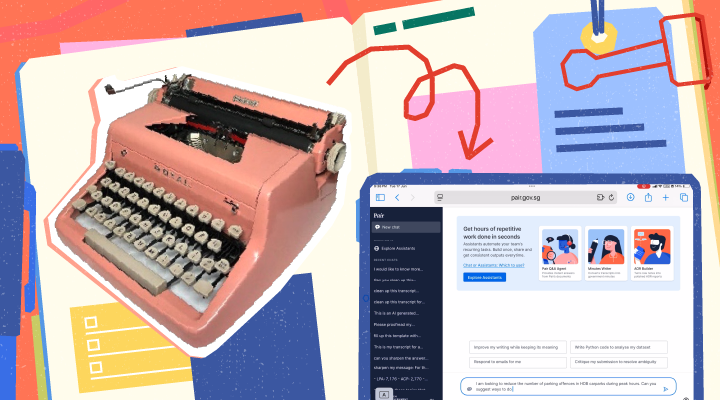
New ways to help officers do their best work
The challenge: Productivity has always been a priority in the Public Service. Back in the 1980s—before full computerisation—officers had to type out reports manually, with every revision requiring a complete retype. It was time-consuming and inefficient.
The solution: Today, the Public Service Division continues to drive productivity through digitalisation and smart tools. AI-powered solutions like Pair Chat help automate repetitive tasks, freeing officers to focus on higher-value work that makes a real difference.
These behind-the-scenes efforts are shaping a more liveable, resilient, and inclusive city for all. As challenges grow more complex, the Public Service remains committed to make every solution smarter, faster, and more people-centred.
- POSTED ON
Jul 7, 2025
-
COVID-19 Stories
National Awards
-
COVID-19 Stories
Podcasts





